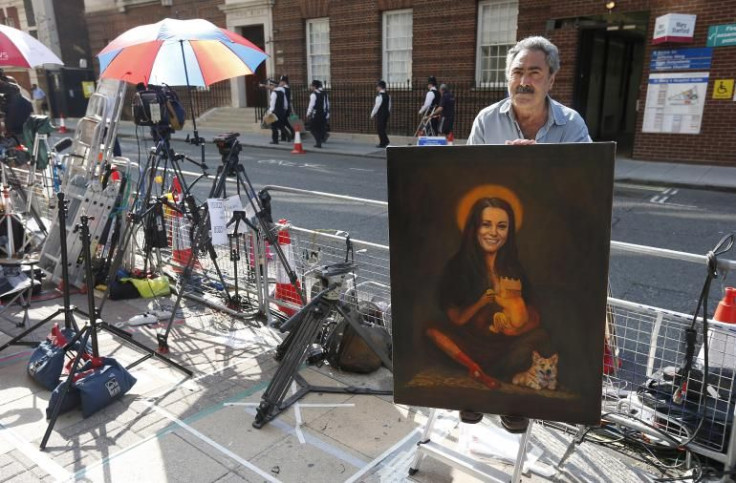Royal Baby Media Hype Provokes ‘Born Equal’ Backlash; The Guardian Offers Opt-Out Option For Republicans

The storm of media coverage that began almost eight months ago with the announcement of Kate Middleton’s pregnancy kicked into high gear early Monday morning.
The 31-year-old Duchess of Cambridge was admitted to a London hospital in the early stages of labor with Queen Elizabeth II's third great-grandchild. Middleton is the wife of Prince William, Duke of Cambridge, and their firstborn is third in line to the British throne.
News of Middleton’s labor has ignited a barrage of TV reports, live blogs, analysis and anticipation. But the wall-to-wall media coverage has also provoked a predictable royal baby backlash, particularly from advocates of British republicanism, a movement seeking to remove the monarchy and replace it with a republic. One republican group launched BornEqual.org, a website and Twitter campaign challenging the royal baby media hype and encouraging the news industry -- and the public as a whole -- to reconsider the appropriateness of royal birthright.
“Here is a new baby whose career, religion, even personal relationships, have already been mapped out. Meanwhile the British people are told in 2013 who their head of state will be in 2063 and beyond. No debate, no discussion. Certainly no vote.”
On its website, the group said it doesn’t expect the media to ignore the royal birth, but it said coverage of the birth should be proportionate and balanced. Specifically, it singles out the BBC, calling its nonstop coverage of the event “cringe-worthy, tasteless and sycophantic.” The Born Equal website includes a page encouraging people to submit examples of tasteless BBC baby hype and file complaints directly with the network. The lead story on the BBC website Monday was “Kate Middleton in labour as world waits.”
Meanwhile, at least one British news outlet is appealing to the sensibilities of Britons who haven't joined the throngs of eager royalphiles gathered outside of Buckingham Palace. The UK newspaper, the Guardian, is giving visitors to its website the option to opt out of royal baby coverage with the click of a mouse. Users can click the “Not a Royalist?” button on the top right-hand corner of its home page, which filters out Middleton-related stories. (Earlier Monday, the button read "Republican?," which is the UK political party that rejects the monarchy.)
Other outlets have handled the issue in a more tongue-and-cheek manner. On the homepage of the Independent website Monday morning, a headline for a story on Middleton’s labor warned British republicans to “look away now.”
And many have. Under the hashtag #BornEqual, Twitter users fed up with the baby hype have been sounding off all Monday morning, some taking the media to task for its obsession and others posting political messages about putting an end to the monarchy.
I still love Kate. But 15,000 children born today will die of starvation, should be working to stop this not focusing on her baby #bornEqual
- Rachel Heydecker (@_rachalia_) July 22, 2013
A TRUELY democratic nation elects their head of state. The people should have the final say: Referendum, now. #BornEqual @RepublicStaff
- George Aylett ♎ (@georgeayl) July 22, 2013
If there's a chasm between the media’s coverage of the royal baby and the public’s interest in it, it’s likely even more pronounced in the U.S. than it is in Britain. As Internatioanl Business Times reported via infographic on Monday, a recent Pew Research study found that only 25 percent of Americans said they're following the news of the royal baby very closely. Maybe it’s time to install Unbaby Me.
Got a news tip? Send me an email. Follow me on Twitter: @christopherzara
© Copyright IBTimes 2024. All rights reserved.






















